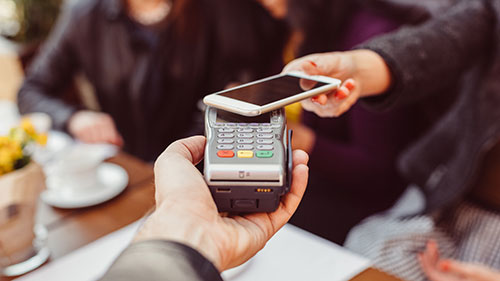Methods to Decrease Costs Within Your Business
For as much as you focus on increasing revenue to maximize your profits, you should put an equal amount of attention on reducing your operating...
Manage your everyday finances with convenient accounts, flexible cards, and personalized service designed to fit your life.
At First Federal Bank, we offer flexible mortgage solutions for almost any situation, helping you secure the right financing for your dream home.
Business banking offers secure financial management, streamlined transactions, credit options, and tools to help businesses grow efficiently and sustainably.
2 min read
First Federal Bank : January 7, 2020 5:03:00 PM EST

 Whether you have an old family recipe that you feel should be shared with the world or want to try your hand in a growing industry, starting a restaurant is challenging yet rewarding experience. Setting aside the intricacies of creating menus and establishing your brand, you will need significant seed money—The Balance Small Business’s Lorri Mealy estimates startup costs between $50,000 and $75,000 at minimum. There are several options out there that are easy to pursue and should set you up for success.
Whether you have an old family recipe that you feel should be shared with the world or want to try your hand in a growing industry, starting a restaurant is challenging yet rewarding experience. Setting aside the intricacies of creating menus and establishing your brand, you will need significant seed money—The Balance Small Business’s Lorri Mealy estimates startup costs between $50,000 and $75,000 at minimum. There are several options out there that are easy to pursue and should set you up for success.
The Small Business Administration recommends venture capital as a means to raise funds for your growing business. If you see your restaurant as one with the potential for high growth, venture capitalists may want to take a look at your business plan. Find an angel investor or venture capital firm and give your best pitch; if they like what they hear, they’ll offer to fund your restaurant enterprise for a share of ownership and a hands-on role in its future.
Per the SBA, your best course for pursuing a small-business loan is to work up a business plan, expense sheet and five years’ worth of financial projections. Regardless of your credit and history, this proof of concept and diligence will give you the chance to secure a loan and should help you obtain the best terms and rates available. Loans are not strictly limited to financing startup: You can pursue equipment financing for your kitchenware and appliances, short-term loans to cover repairs and upgrades, or a business line of credit to cover smaller needs.
Crowdfunding has become a reliable way for innovative businesses to raise funds by turning directly to customers. If you have a great concept or unique menu, you may well be able to fund your business with a well-realized campaign on a platform like Kickstarter or IndieGoGo. You can offer rewards and benefits for backers like lifetime discounts, merchandise or free meals, which can help create strong word-of-mouth that will guide you toward your funding goal. Though the success rate is lower with crowdfunding, so is the risk. If nothing else, it’s a great option to consider as a supplement to your conventional funding methods.
If you have your heart set on starting a restaurant, consider starting smaller and opening a food truck. Food trucks present the option to test your restaurant concept in a mobile platform that doesn’t carry the same sizable startup costs and overhead as a brick-and-mortar location. While you’ll need to pay for a vehicle, equipment and supplies, you may have better luck securing a loan or venture capital since you’ll be asking for a smaller amount. What’s more, if your food truck takes off, you can use that capital to fund a fixed location.
There is no shortage of options available to you if you want to open a restaurant of your own. Speak with your financial institution and learn what’s available, then put yourself in a position to make the step from dream to reality.

For as much as you focus on increasing revenue to maximize your profits, you should put an equal amount of attention on reducing your operating...

2 min read
There are a lot of things to consider when you open a small business. One of the essential tools you’ll need is a way to accept payment. If you’re...
.jpg)
If you hope to secure loans for your business and build a trustworthy reputation, it’s wise to establish business credit history separately from your...
Manage your accounts, make payments, and more.
Open an account with us.